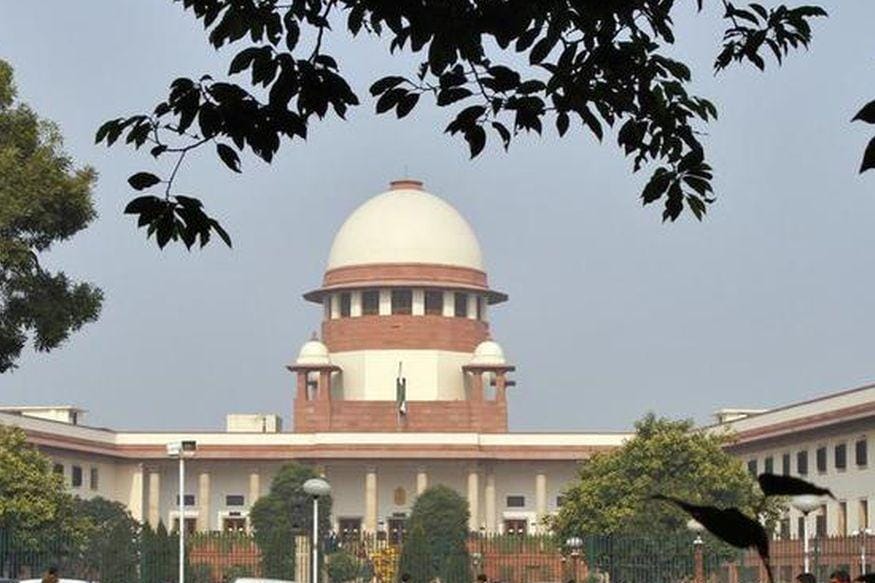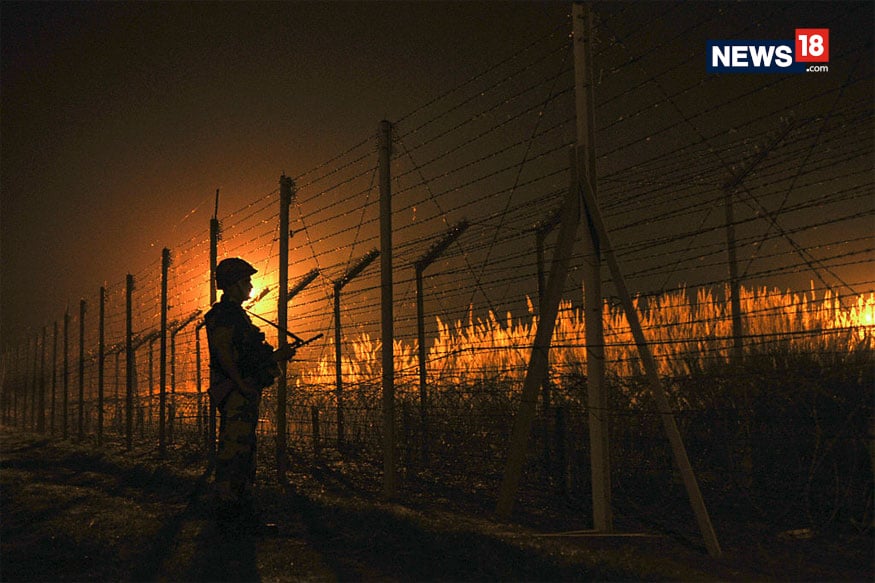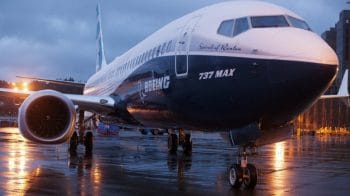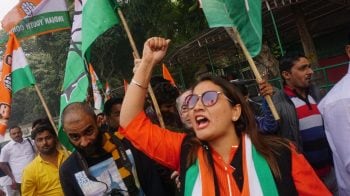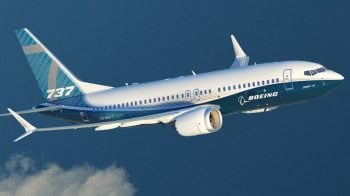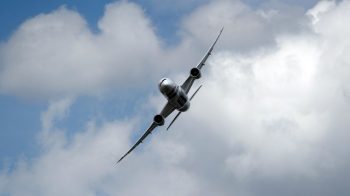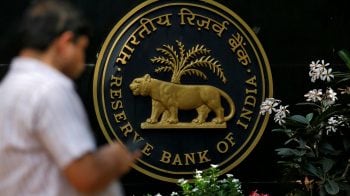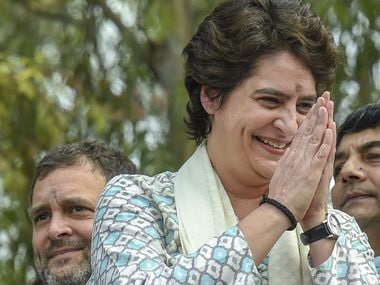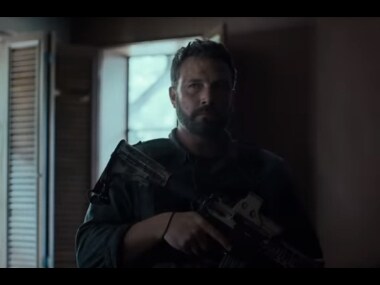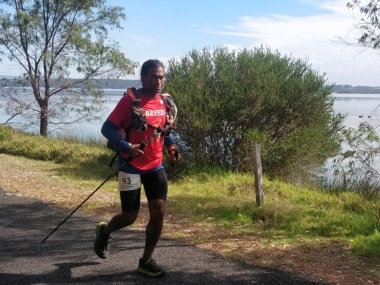Harsh Vardhan, a senior aviation expert, said the way pilots are being inducted "is a cause of concern".
Nikita Vashisht
Moneycontrol News
With over 20 countries, including India, grounding Boeing's 737 Max planes after the Ethiopia Airlines flight crashed, clamour for the aircraft's inspection and better training of pilots has gained momentum.
Boeing's upgraded next-gen 737 MAX aircraft has been at the centre of this entire episode as the aircraft has been involved in two fatal accidents within a span of five months. Even as investigation for the first accident, involving Indonesia-based Lion Air was underway, the second accident involving Ethiopian Airlines took place.
Experts feel the accidents should be an eye-opener for people in charge of training pilots.
"Indian pilots are more conservative than western pilots with respect to training... But that's not the only reason. Pilots are being given good enough training," Harsh Vardhan, a senior aviation expert, told Moneycontrol.
He, however, said that the way pilots are being inducted "is a cause of concern".
"Earlier, they would first work on smaller aircraft for some time till they understand the behaviour of the machine and then they would be put on bigger aircraft. But now, a 20-year-old pilot is directly being put in 737 aircraft and in five to six years, they become captains..." he said.
Vardhan said that the airlines must understand the "learning curve for the aircraft" and must respect the gestation period for the same.
"Once the aircraft becomes a regularly used machine, then its faults are noticed," he added.
Boeing 737 Max series is a narrow body aircraft that can carry up to 230 passengers. These were launched in 2011 and were first flown in 2016. When the aircraft was launched, Boeing had claimed that the aircraft was similar to its predecessor B737 next generation aircraft. Since 2017, Boeing has delivered 387 Max 8s and 9s and has taken orders to deliver 4,400 more planes for 100 customers.
"It, however, turned out that the aircraft is all together different, especially in terms of engine parameters (engine design) and automated cockpit control system. Now ,the cockpit system that was controlled manually, is being controlled by a software," Vardhan said adding that the pilots, initially didn't know how to control it or how to give overriding command.
According to a report by news agency AP, two pilots in the US have registered their complaints against the autopilot system of B737 Max8.
The pilots said that "soon after engaging the autopilot on B737 Max 8, the nose tilted downwards sharply". The planes could be recovered by disconnecting the autopilot.
"In both the crashes, the pilots became aware of the malfunctioning of the aircraft and they immediately wanted to get back to the runway. Even with permissions to do so, they couldn't land safely because they wanted to take over the control of the aircraft which they couldn't get due to the new system of the aircraft. Sometimes, the crash happens because the pilot wasn't aware of the functions, but here, he was aware...The pilot is conscious, he is aware but somewhere the machine is not responding to his commands which is a cause of concern," said Vardhan.
Sridhar Krishna, Managing Director and Chairman, Sankhya InfoTech, a private firm providing evidence based training solutions to airlines, told Moneycontrol that training levels among Indian pilots was among the lowest in the world.
"While the western airlines do pilot training of level four, Indians are at level one," he said.
There are four levels of training for pilots, each advancing with every level. Level one is an Index based training which guides pilots about mal-functioning of engines. Level two is a Qualification based training where pilots are taught to "qualify advanced aircraft technology". Level three and four focus on evidence based training which collects various evidences to improve individual areas of concerns.
"Under the EBT, pilots are closely monitored by inspectors and are graded on a scale of 1 to 5 in areas of communication, aircraft management, aircraft knowledge, leadership, situational awareness, etc," said Krishna.He said that pilots need this advanced training in India to avoid mishaps.
"So, even if we gave benefit of doubt to Boeing in the first (Lion Air) crash case, we can't do that with second crash. Even before Lion Air crash happened, the pilots association was complaining that pilots have not been trained on this (aircraft) and there is no simulation training for this... Boeing had maintained that there were no variations in Max series. But after Lion Air, they have accepted that limited training is required," Vardhan explained.
An instructor at a private pilot training institute told Moneycontrol that "pilot training methods are not good in India".
"Teachers hardly care whether students have learnt anything or not. They are only concerned with completing the course," he said, on condition of anonymity.
He said that airlines require "pilots with advanced skills, something which isn't taught at regular training institutes".
Krishna said that airlines need to install EBT system at their own end which might cost close to $ 9 -10 million.
"But even at that cost, an airline can save about $ 20 - 25 million annually as insurance premiums due to low accidents," he said.
The instructor at the training institute said that Directorate General of Civil Aviation (DGCA) must provide well worded guidelines for pilot training in India.
"While we are continuously reviewing our pilot training guidelines, we are not adopting EBT level training anytime soon," BS Bhullar, head, DGCA had told Moneycontrol.
In a late night direction, DGCA had ordered grounding of B737Max planes in India and has restricted flying of such planes in Indian airspace from 4 pm on March 13. This came after almost 20 countries, including China, Ethiopia, South Africa, Morocco, the UK, France, Malaysia, Germany, Indonesia and Singapore decided to ground the planes.
"Nobody takes these kind of decisions on impulse because if you ground an aircraft wrongly, Boeing too has the right to sue the government for taking wrong decisions against them," said Vardhan.
He, however, said that the grounding is "only temporary" and that the planes will be flying once the matter is fixed.
"These planes should be grounded for few days and be put under thorough inspection. We might not know the exact cause of crash but we can surely zero in on one of the possible causes... We can examine the machine for all the causes," he said.
DGCA had initially issued advisory to airlines operating B737Max planes to thoroughly check the maintenance and only allow pilots with 1,000 hours of flying to operate such planes.





















